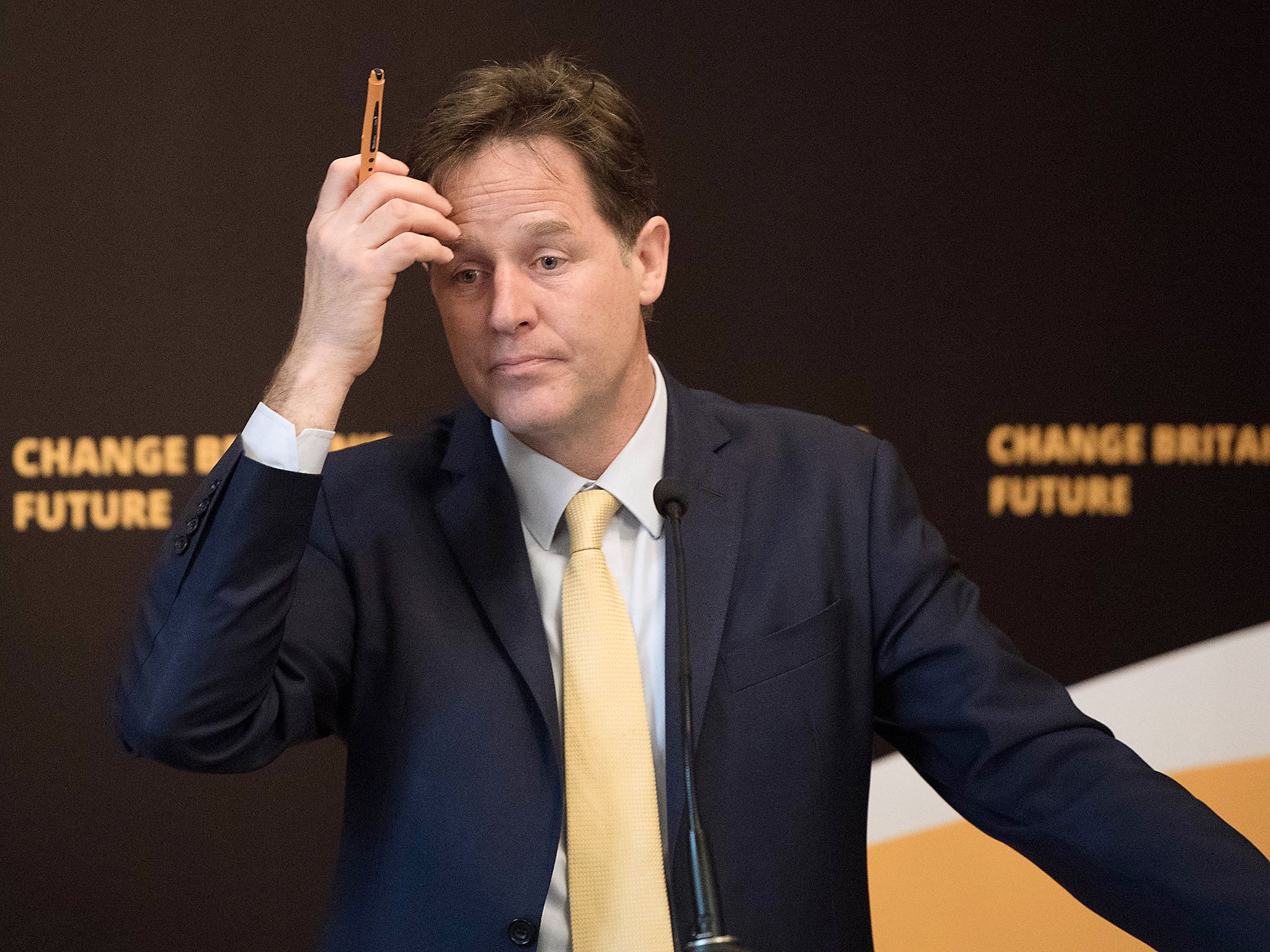Nick Clegg's refusal to enter the House of Lords proves he's exactly the sort of person they desperately need
Reform of the Lords will, eventually, become irrepressible. If more figures like Clegg turn down their opportunity to join the house as it stands, that process will speed up


The House of Lords reminds me of the fabled association that Groucho Marx described when he said: “I don’t care to belong to any club that will have me as a member.” In the case of the Lords, however, anyone who welcomes a nomination to the upper chamber with barely disguised glee should surely face immediate prohibition, having proved themselves unsuited to the role.
Mere hours after the unseating of former Liberal Democrat leader Nick Clegg as dawn broke on Friday morning – an overdue but nevertheless, in my view, unwelcome beheading delivered by an angry young electorate – the clamouring to find him somewhere to sit on the red benches had already begun.
Yesterday, Clegg brought it to an abrupt end. After promising that he would continue advocating for a progressive, open, pro-European Britain though outside Westminster, he tweeted: “Thanks for the kind petition to put me in the Lords, but I’m afraid an unelected chamber is not for me. Ermine just isn’t my thing….”
In this simple message, the former deputy prime minister showed just how suited he would have been to membership of the Lords, in both temperament and values. He would have offered an unmuddled, informed voice on the biggest issues we face in the coming years; he holds strong relationships within both houses at home and across European politics too; and yet Clegg remains, at heart, a democrat who disapproves of unelected privilege and seeks to remove unfair advantage wherever he sees it. Shame, then, that a man with such principles ergo finds himself unable to act upon them in service of the country.
Not every campaigner has been as honest to their initial driving values when it comes to accession to the Lords. The lure of unelected political power has been too seductive to some of the biggest critics of it, particularly those on the left – former deputy prime minister John Prescott, and the former Liberty director Shami Chakrabarti to name just two.
Clegg’s refusal to cast aside his long-held beliefs in order to cling onto some semblance of national influence deserves our utmost respect, though it nevertheless robs British politics of an important figure upon whom historians will look more fondly than the electorate of his day. It’s also a reminder of how far progressive politics is from finding a satisfactory answer to the vexed question of the upper chamber.
The Liberal Democrat position is to call for reform of the Lords to ensure that those who scrutinise the laws made in the Commons are also directly elected by the people. Under that system, however, Clegg would also find himself unlikely to secure a seat even if he desired to cross the lobby.
It’s fairly obvious that the reason Clegg found himself ousted from Parliament last week was because his Sheffield Hallam seat includes a large number of motivated young and student voters, not only inspired by Jeremy Corbyn’s promise to lead “for the many, not the few”, but who were also still seeking retribution for Clegg’s decision to renege on his tuition fees promise in the 2010 manifesto in cutting a deal with David Cameron to enter the coalition government. It was a disastrous call that vastly underestimated the influence of the youth vote (Theresa May followed in his footsteps making that same mistake this time round), and it cost his party its place in modern politics. And, if the Lords was elected, it would see him out of the upper chamber as well as the lower.
There should be a place in the upper house, however, for those, who have made a significant and measurable contribution to public life to continue to scrutinise our law making. Individuals such as Clegg; others who have served long and successful periods in local government, for example, such as the former Manchester Council chief executive Howard Bernstein; and those who have served the public on the frontline – exceptional candidates from, say, nursing, the police, the fire service or education.
Reform of the Lords will, eventually, become irrepressible. If more figures like Clegg turn down their opportunity to join the house as it stands, that process will speed up. A transparent, public process of nominations, which takes potential candidates from all walks of public life (in the broadest sense) might not only answer Clegg’s concerns but create a chamber in which he and individuals like him – those we need most in the upper house – would find themselves willing, able and eager to serve.

Join our commenting forum
Join thought-provoking conversations, follow other Independent readers and see their replies